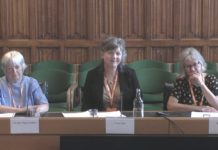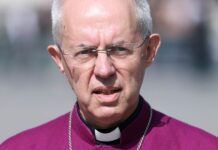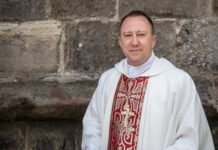After a two-hour hearing at Calhoun County Courthouse in St. Matthews, SC, this morning, First Circuit Court Judge Edgar Dickson ordered all parties—The Episcopal Church in South Carolina (TECSC) and The Episcopal Church, along with a group that broke away from the Church in 2012—to enter into mediation in the ongoing dispute over enforcing the South Carolina Supreme Court’s 2017 decision on diocesan and parish properties.
The hearing was initially in regard to a lawsuit filed against TECSC and The Episcopal Church by the breakaway group that has come to be known as the Betterments Act case. It was filed in November 2017 and cites the little-used Betterments Act statute to seek compensation from TECSC and The Episcopal Church for the cost of improvements made to the properties over the years. That suit followed a decision by the South Carolina Supreme Court on August 2, 2017 ruling that all diocesan property and the property of 29 parishes is held in trust for The Episcopal Church and TECSC.
During the hearing, attorneys for TECSC and The Episcopal Church argued the grounds for dismissal of the case, per their motion filed on December 15, 2017. During the course of the arguments, Judge Dickson asked several questions on issues surrounding ownership and trusteeship of the involved properties.
In response, the attorneys for the breakaway group primarily argued that the Supreme Court decision of August 2, 2017 does not, in their view, specifically identify the parishes that directly acceded to the Dennis Canon. That canon requires that church properties be held in trust on behalf of the diocese, to be used for the benefit of the Episcopal Church.
The attorneys for the breakaway group argued that the court still needs to determine which parishes acceded to the Dennis Canon. Attorneys for TECSC and The Episcopal Church countered, noting that the Supreme Court already made that determination, identifying 29 parishes that acceded and are bound by the Dennis Canon. Both sides agreed that there were seven or eight parishes that did not accede to the canon, and therefore, those parishes are not a part of the underlying case.
After both sides had a chance to present their positions to the court, Judge Dickson ordered the parties to return to mediation, even though both sides had agreed at a point earlier in the hearing that previous efforts toward mediation have not proved effective. From October 2017 to January 2018, the parties held four days of mediation ordered by U.S. District Judge Richard Gergel in connection with a separate federal lawsuit. No agreements resulted from that mediation, which was conducted by Senior U.S. District Judge Joseph F. Anderson, Jr. in Columbia, SC.
Judge Dickson noted that mediation is now mandatory in circuit court, and it is his belief that because there are “problems of the court deciding church issues,” mediation would be the best way to resolve the “competing interests in this case.” He advised that his mediation order is “global and complete” for all cases before him involving the associated parties (other than the seven or eight parishes that all parties agreed are no longer involved).
All parties agreed to select a new mediator, and the judge encouraged them to work together to select someone who is agreeable to both sides. Overall, the attorneys for TECSC were pleased with the tone of the hearing. “We have to leave open the possibility that some things could change, and mediation would be effective,” said Chancellor Thomas Tisdale, Jr.
No timetable was set for the next steps. Judge Dickson did not rule on the motion to dismiss the Betterments Act case, nor did he grant a stay (as requested by the breakaway group) that would put the case on hold until mediation is complete.
According to attorneys, mediation is best understood as a conversation, with a mediator directing and facilitating. The only way mediation results in any action is if all parties agree to a resolution in writing.




No one in the case noted that the Denis Canon doesn’t actually exist except that it is in the book of Canons. It can not be proved that it got its final vote.
It seems fairly obvious that this press release was written by the TEC group’s press person.
I just read that TECSC was the source. I’m tired!